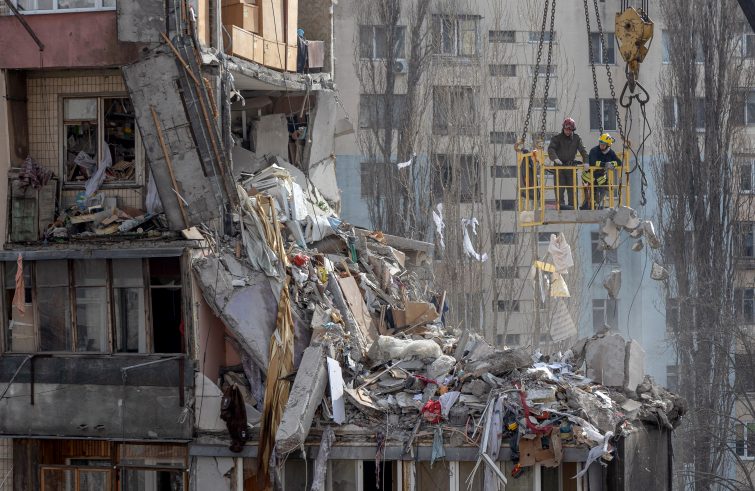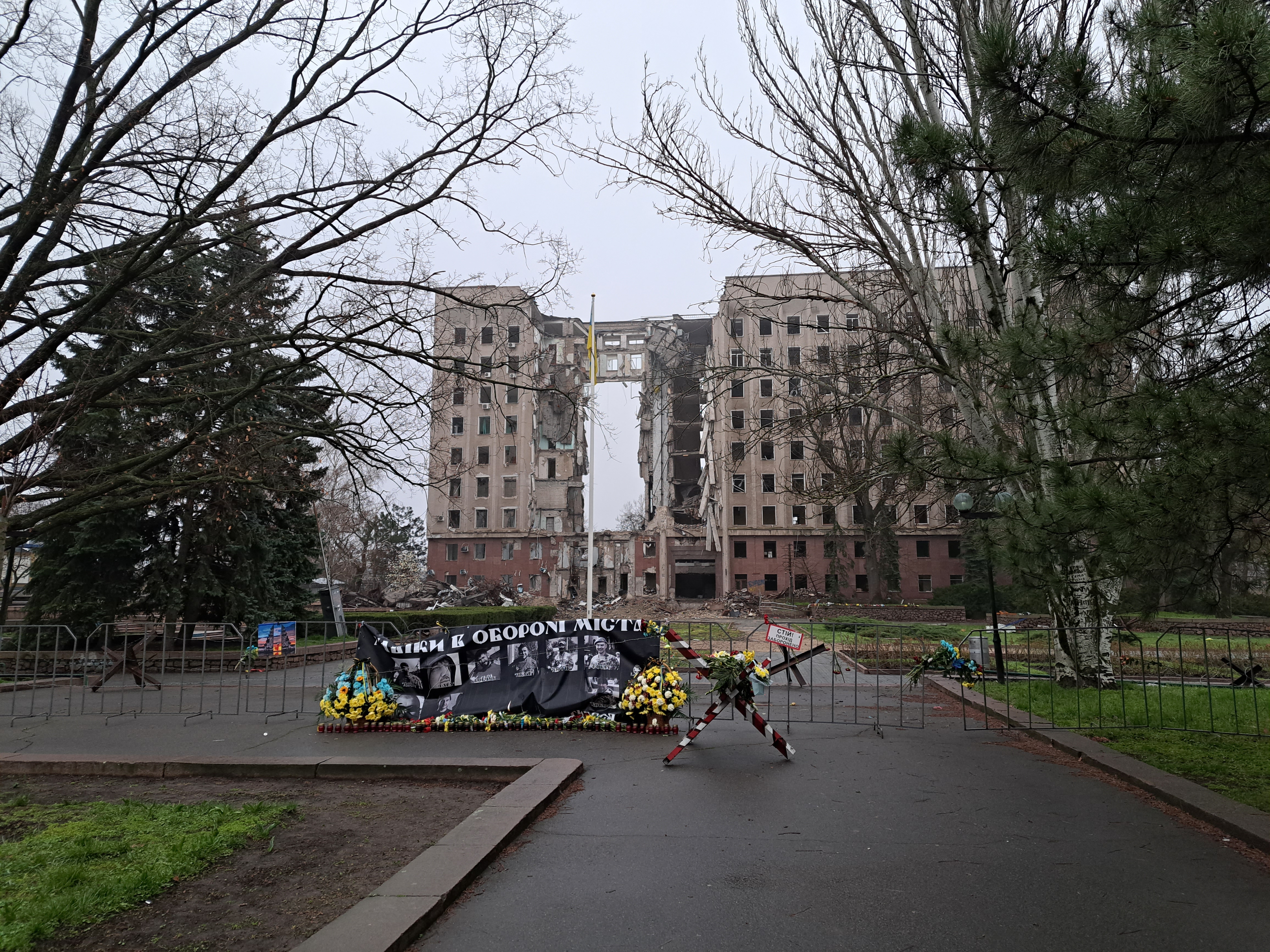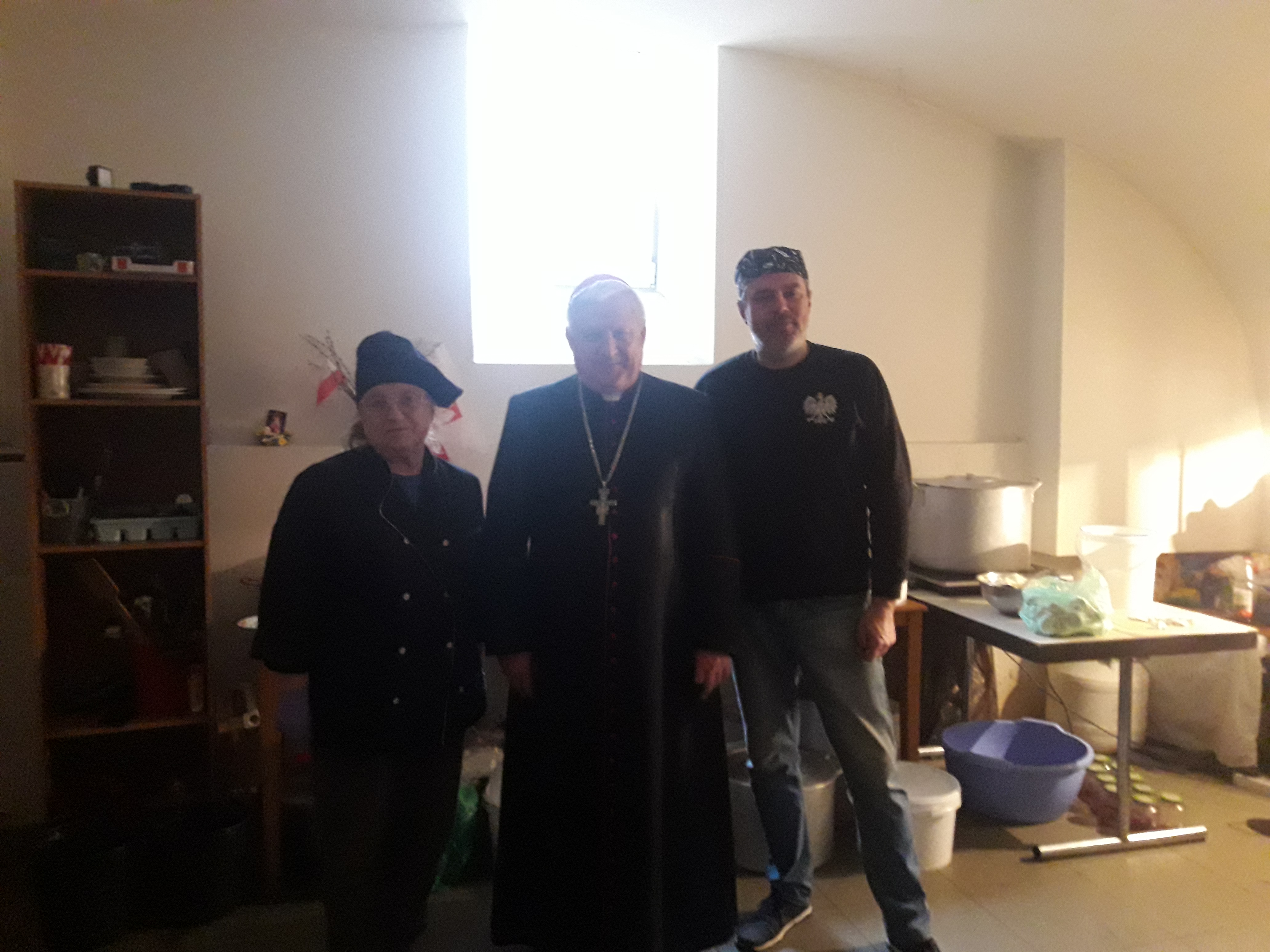
“People are afraid, Iespecially families with children. I am saying this from the bottom of my heart.” Speaking to SIR from Odessa, Father Roman Krat, spokesperson for the Catholic Bishop, describes the plight of the population during these days of continuous attacks on the city. “When I hear the air raid warnings or the explosions, I don’t move. I stay where I am. But when families with children hear the alerts, knowing that the rockets could also hit apartment blocks, they seek safe shelter. These places are usually the basements beneath residential buildings. They are dark, cold, dirty, and certainly not designed as shelters. It always happens at night. The mothers are forced to wake up the children and bring them down to the basement. One can only imagine how these children feel in this situation of terrifying darkness and explosions.” Odessa is under Russian shelling. There was a loud explosion in the city on Wednesday during a meeting between Ukrainian President Volodymyr Zelensky and Greek Prime Minister Kyriakos Mitsotakis. The explosion happened near the port and was preceded by an air raid warning. The Greek delegation was about 200 metres from the blast. They had no time to seek shelter, but in a post on X, the Greek Minister confirmed that fortunately there were no casualties among the Greek delegation.
 The death toll from the Russian attack on Odessa last Saturday, 2 March, is extremely high. A total of ten civilians were killed. Two of them were infants under one year of age. The body of a woman, lying next to the body of a child, was pulled from the rubble on Wednesday. “The mother tried to cover the 8-month-old child with her own body. She was trying to save them. They were found in a tight embrace,” said the State Emergency Service, which had found the body of a woman and those of her four-month-old and two-year-old children by her side. Several apartment blocks in the southern Ukrainian coastal city were destroyed in the Russian attack, launched by Iranian-made kamikaze drones on Friday night.
The death toll from the Russian attack on Odessa last Saturday, 2 March, is extremely high. A total of ten civilians were killed. Two of them were infants under one year of age. The body of a woman, lying next to the body of a child, was pulled from the rubble on Wednesday. “The mother tried to cover the 8-month-old child with her own body. She was trying to save them. They were found in a tight embrace,” said the State Emergency Service, which had found the body of a woman and those of her four-month-old and two-year-old children by her side. Several apartment blocks in the southern Ukrainian coastal city were destroyed in the Russian attack, launched by Iranian-made kamikaze drones on Friday night.
 “The attacks have intensified in the last few days. We were taken by surprise,” says Father Krat. “We have no idea what they are aiming at, why they are attacking blocks of flats where civilians live and why they are killing women and children. We have seen what happens every time there is an attack on a Russian ship in the Black Sea. But why target civilians? That’s the problem.” As for the attack on the Greek delegation, the priest said: “It was clearly a warning signal to Zelensky. Attacks almost always happen at night, from 11 p.m. to 2 a.m. Wednesday’s attack happened in the morning.” The situation in the cities of Mykolaiv and Kherson, just a few kilometres from the front line, is becoming increasingly unstable. “Every day there are bombardments of all sorts, drones, missiles, artillery. There are victims all the time. Churches have also been attacked and destroyed”. “We are praying,” continues the spokesman for the diocese. “We pray especially for the victims, because that is our primary mission. To be close to our people, to accompany them in this time of trial and to help them to see these terrible events also through the lens of faith”. Many refugees who fled the Russian-occupied cities found shelter in Odessa. The Catholic Church has always been at the forefront of sheltering these people, also thanks to the commitment and presence of Caritas. Two days a week, food parcels are distributed to families in the cathedral, and special projects are carried out to help the refugees. “We are tired,” admitted Father Krat.
“The attacks have intensified in the last few days. We were taken by surprise,” says Father Krat. “We have no idea what they are aiming at, why they are attacking blocks of flats where civilians live and why they are killing women and children. We have seen what happens every time there is an attack on a Russian ship in the Black Sea. But why target civilians? That’s the problem.” As for the attack on the Greek delegation, the priest said: “It was clearly a warning signal to Zelensky. Attacks almost always happen at night, from 11 p.m. to 2 a.m. Wednesday’s attack happened in the morning.” The situation in the cities of Mykolaiv and Kherson, just a few kilometres from the front line, is becoming increasingly unstable. “Every day there are bombardments of all sorts, drones, missiles, artillery. There are victims all the time. Churches have also been attacked and destroyed”. “We are praying,” continues the spokesman for the diocese. “We pray especially for the victims, because that is our primary mission. To be close to our people, to accompany them in this time of trial and to help them to see these terrible events also through the lens of faith”. Many refugees who fled the Russian-occupied cities found shelter in Odessa. The Catholic Church has always been at the forefront of sheltering these people, also thanks to the commitment and presence of Caritas. Two days a week, food parcels are distributed to families in the cathedral, and special projects are carried out to help the refugees. “We are tired,” admitted Father Krat.
“For two years now, this war has torn us away from normal life. Our request to the world and to Europe is not to tire of us. We need your support, spiritual and material. We demand an end to this war, but not at the cost of surrendering this territory to Russia and finding ourselves on the opposite side. We have suffered two years of war, it cannot end like this. We hope that this will not happen and that it will never happen. Do not abandon us.”











